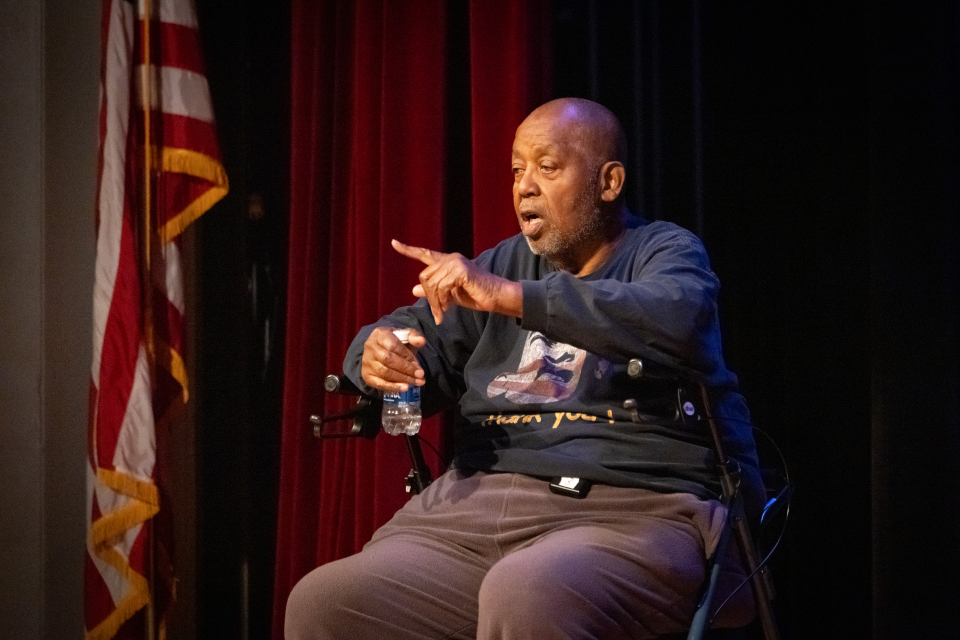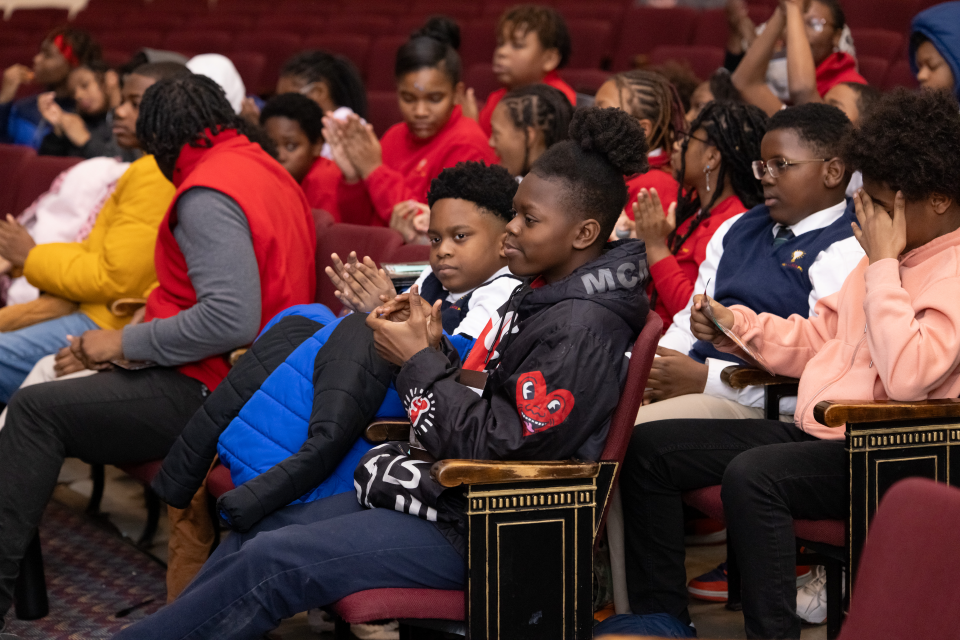
Black history is American history. This generation needs to be educated by the older generation.
In the fall of 1957, Ernie Wade rode a bus from Pittsburgh to Charlotte, North Carolina, where he was going to start his freshman year at Johnson C. Smith University.
When the bus stopped for dinner, Wade, a young Black man, had to order food by ringing a bell at an outdoor window near the back of the restaurant. The other passengers — all White — ate inside.
The incident inspired Wade to protest during the battle for civil rights in the 1960s and, decades later as Dr. Wade, to write a play about the sometimes-uneasy conflict between today’s youth and those who fought to end segregation and oppression.
“Black history is American history,” said Dr. Wade, now 85 years old. “This generation needs to be educated by the older generation.”
On Wednesday, February 19, Dr. Wade and three other actors, singers and musicians performed his play “Words from the Trail” at Milwaukee Area Technical College’s Cooley Auditorium.
The event was part of MATC’s celebration of Black History Month and sponsored by the college’s Office of Student Life.
A host of MATC students, faculty and staff, along with students from Milwaukee Public Schools’ Milwaukee College Prep school, enjoyed the play’s spirited dialogue, soaring songs and thought-provoking messages.
Dr. Wade plays Uncle Jake, a civil rights “warrior” who marched and protested in the 1960s. He is visiting his young nephew (played by Ridney Archie), and his daughter (played by Indira Page), who are successful gospel singers who travel the country. They believe the racial struggle is over, but Uncle Jake begs to differ and offers a history lesson. The play is a back-and-forth between Uncle Jake and the couple.
“You say I’m living in the past. You say it’s a new day. You say we’ve had a Black president,” Dr. Wade says as Uncle Jake. “You think the way things are today is the way they’ve always been.”
“If it’s a new day, why were so many people who don’t look like me angry when someone who looked like me became president,” he asks. “A new day? It seems like the same old days.”
Page asks if all that protesting and marching really accomplished anything.
“All those fancy hotels you stay at and fancy restaurants you eat at, someone marched to get you in there,” Uncle Jake answers.
Uncle Jake goes on to say that the protesters of the 1960s had faith and commitment, and always knew they were on the right side. “The road we traveled was not an easy one. But we stood for right, we stood for justice and we stood for those who couldn’t stand for themselves,” he said. “You can’t crawl your way to freedom. You need to stand up to get it.”
And, everyone must look inside and change themselves to make a better place for all, Uncle Jake says. “We didn’t hate America. We wanted America to keep her word: the home of the brave and the land of the free. We just wanted America the Beautiful.”
At the end, Uncle Jake and the nephew’s daughter find some common ground: Uncle Jake is happy he got to tell his story while the nephew’s daughter acknowledges the accomplishments of the past. The nephew then sings “America the Beautiful,” “God Bless the USA” and “Lift Every Voice and Sing.”
At the end of the show, Dr. Wade and the cast members answered questions from the crowd.
When asked what today’s generation can do, Dr. Wade said, “We’ve made a lot of progress, but young people should find out what needs to be done. Don’t wait for someone else — you can do things yourself.”
Young people can use their computers, smartphones and other devices to ask what they can do to benefit their people, Dr. Wade said. They can find an older person to serve as a mentor, he added.
“Ask for help until you get it,” Dr. Wade said. “If everyone changed one little thing, imagine how much we could change.”
About MATC: As Wisconsin’s largest technical college and one of the most diverse two-year institutions in the Midwest, Milwaukee Area Technical College is a key driver of southeastern Wisconsin’s economy and has provided innovative education in the region since 1912. More than 30,000 students per year attend the college’s four campuses and community-based sites or learn online. MATC offers affordable and accessible education and training opportunities that empower and transform lives in the community. The college offers more than 180 academic programs — many that prepare students for jobs immediately upon completion and others that provide transfer options leading to bachelor’s degrees with more than 40 four-year colleges and universities. Overwhelmingly, MATC graduates build careers and businesses in southeastern Wisconsin. The college is accredited by the Higher Learning Commission.


